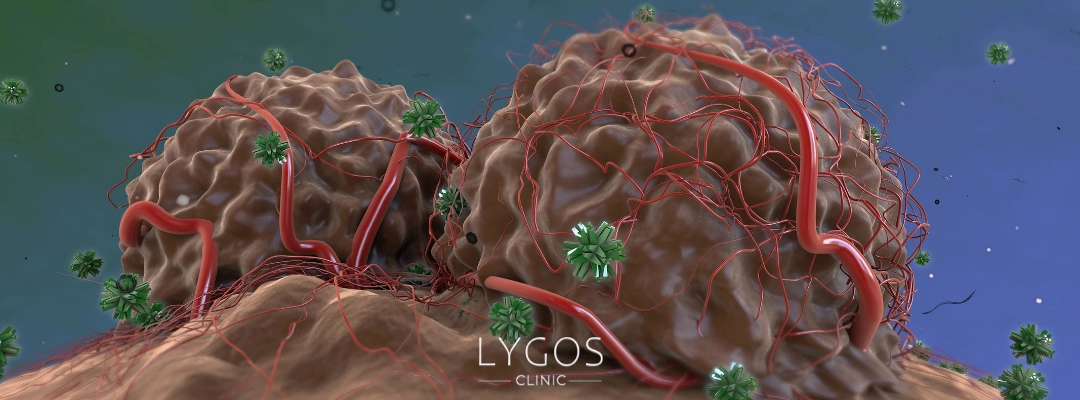What is Tumor | Tumor Treatment | Tumor Symptoms | LYGS 2025

Tumor Treatment and Symptoms
Tumors are abnormal tissue growths that occur when cells grow and divide more than normal. These growths form abnormal masses in the body, leading to excessive enlargement of tissues. Tumors are generally divided into two main groups: benign and malignant.
Benign tumors usually do not pose a cancer risk, do not spread throughout the body and can be controlled. Malignant tumors, on the other hand, have the potential to metastasize and can spread to different parts of the body. Therefore, early diagnosis is important and treatment should be started immediately.
What is a Tumor?

Tumors are neoplasms characterized by abnormal cell growth and manifest as masses of tissue or swellings. Tumors can occur in different parts of the body and can be benign or malignant. Under normal conditions, cells grow and develop in a cycle and die after completing their task. However, tumor formation occurs when cells grow uncontrollably. While this abnormal growth is usually caused by genetic mutations, malnutrition, environmental factors and certain diseases also play an important role.
The type of tumor is of great importance for the effects it can have on the body. Benign tumors, i.e. benign tumors, usually do not pose a cancer risk and are not likely to metastasize. Such tumors can be easily removed surgically and are usually not dangerous. Malignant tumors, however, are so-called malignant tumors, and their greatest risk is their ability to metastasize. Malignant tumors can spread to different parts of the body, which can lead to more serious health problems.
Early detection and treatment play a critical role in controlling malignant tumors. For example, brain tumors can be both benign and malignant. While benign brain tumors can be controlled surgically, malignant brain tumors can be more complex and serious. Symptoms of a brain tumor include headaches, especially at night, fainting spells, balance disorders, speech difficulties and forgetfulness. These are important signs that should be carefully evaluated.
What are the Symptoms of Tumor?

A tumor can show different symptoms depending on its type, location and structural features. In general, some warning signs of the presence of a tumor can be new bumps or masses, abnormal bleeding on the skin or sudden changes in moles. Symptoms such as excessive weight loss, a constant feeling of tiredness, hoarseness and shortness of breath with coughing can also indicate the presence of a tumor. The appearance of blood in the urine or stool is a serious health concern.
- To list the tumor symptoms more clearly:
- New bumps or masses on the body.
- Abnormal sores or moles on the skin in different shapes.
- Loss of appetite and consequent weight loss.
- A constant state of fatigue.
- Cough and hoarseness.
- Difficulty breathing.
- Blood in the urine or stool.
- Infections in the body do not heal.
- Night sweats.
- Headaches and dizziness.
These conditions provide important clues about tumor symptoms and signal that something is wrong in the body. It is very important to pay attention to such symptoms for early diagnosis and to consult a health professional when necessary.
What is Benign Tumor?

Benign tumors, or benign tumors, are defined as abnormal cell growths that grow slowly and do not pose a cancer risk. Because these tumors usually grow without damaging surrounding tissues, they often do not pose a significant threat. The most distinctive features of benign tumors include their slow growth, their lack of ability to metastasize and their unlikelihood of developing into cancerous cells. In addition, the cell structure of these tumors is very similar to that of normal cells.
Examples of benign tumors include lipomas (adipose tissue tumors), fibromas (fibrous tissue tumors), adenomas (glandular tissue tumors) and myomas (muscle tissue tumors). Although usually not dangerous, in some cases benign tumors can press on vital structures, such as blood vessels or nerves, depending on their location. Such conditions may present with symptoms and may require surgical intervention.
For example, a benign tumor in the brain can affect surrounding tissues and nerves, causing headaches, visual impairment or other neurological symptoms. In such cases, it is important to create an appropriate treatment plan, taking into account the size and location of the tumor. Benign tumors can usually be easily removed surgically and often without complications. Therefore, benign tumors are usually manageable and do not cause serious health problems for patients.
What is Malignant Tumor?

Malignant tumors, or malignant tumors, are dangerous masses that form when cells grow and divide more than normal and can lead to cancerous tissue in the body. One of the most distinctive features of such tumors is their ability to metastasize, meaning that they can leave their location and spread to other organs through the bloodstream or lymphatic system. Malignant tumors therefore have the potential to damage surrounding tissues and pose serious health risks.
Diagnosis and treatment of malignant tumors is extremely important. Early diagnosis greatly increases the success of the treatment process. Treatment options for such tumors include surgery, chemotherapy and radiation therapy. The most appropriate treatment method is determined by the physician depending on the location, size and type of tumor.
Surgery aims to remove the tumor completely from the area where it is located. Chemotherapy uses medication to stop the growth and spread of cancer cells. Radiation therapy uses high-energy beams to destroy or shrink cancer cells. Each treatment method has advantages and possible side effects, so a detailed assessment between the patient and the doctor is necessary.
Tumor Treatment

Benign tumors do not require special treatment as they are usually not composed of cancerous cells and can be easily removed surgically. After removal, the patient’s condition is monitored regularly. However, malignant tumors require a more complex treatment process and may require a number of different methods.
The main methods used in the treatment of malignant tumors are as follows:
- Surgical Intervention: Surgery to completely remove the tumor from its site is usually the first step in the treatment process. The success of surgery depends on the size and location of the tumor.
- Chemotherapy: A drug treatment used to kill cancer cells or stop their growth. It is usually preferred after surgery or when the tumor cannot be removed.
- Radiation Therapy: A treatment method that aims to destroy cancer cells using high-energy X-rays. This method can be used in combination with surgery or independently.
- Ablation Therapy: A technique to destroy cancerous tissue, usually using heat or cold.
- Embolization: A method that blocks the blood vessels that support the tumor’s growth and prevents it from feeding.
- Hormone Therapy: Some tumors are affected by hormones. This treatment method aims to reduce the effect of hormones that trigger tumor growth.
- Immunotherapy: A form of treatment that helps the body fight cancer by strengthening the immune system.
- Targeted Therapy: Drugs that target specific molecules to slow or stop the growth of cancer cells.
- Stem Cell Transplant: A method used in cancer treatment, especially in blood diseases. It is performed by transplanting healthy stem cells into the patient’s bone marrow.
- Palliative Treatment: It is not aimed to cure cancer, but to improve the patient’s quality of life. It focuses on pain management and symptom relief.
- Photodynamic Therapy: A treatment that uses a combination of light and special drugs to destroy cancer cells.
- Cryotherapy: The process of destroying cancer cells by freezing them.
The choice of these methods is determined by the doctor, depending on the type and stage of the tumor and the general health of the patient. In the treatment of malignant tumors, early detection and a comprehensive treatment plan play a critical role in the patient’s recovery.


